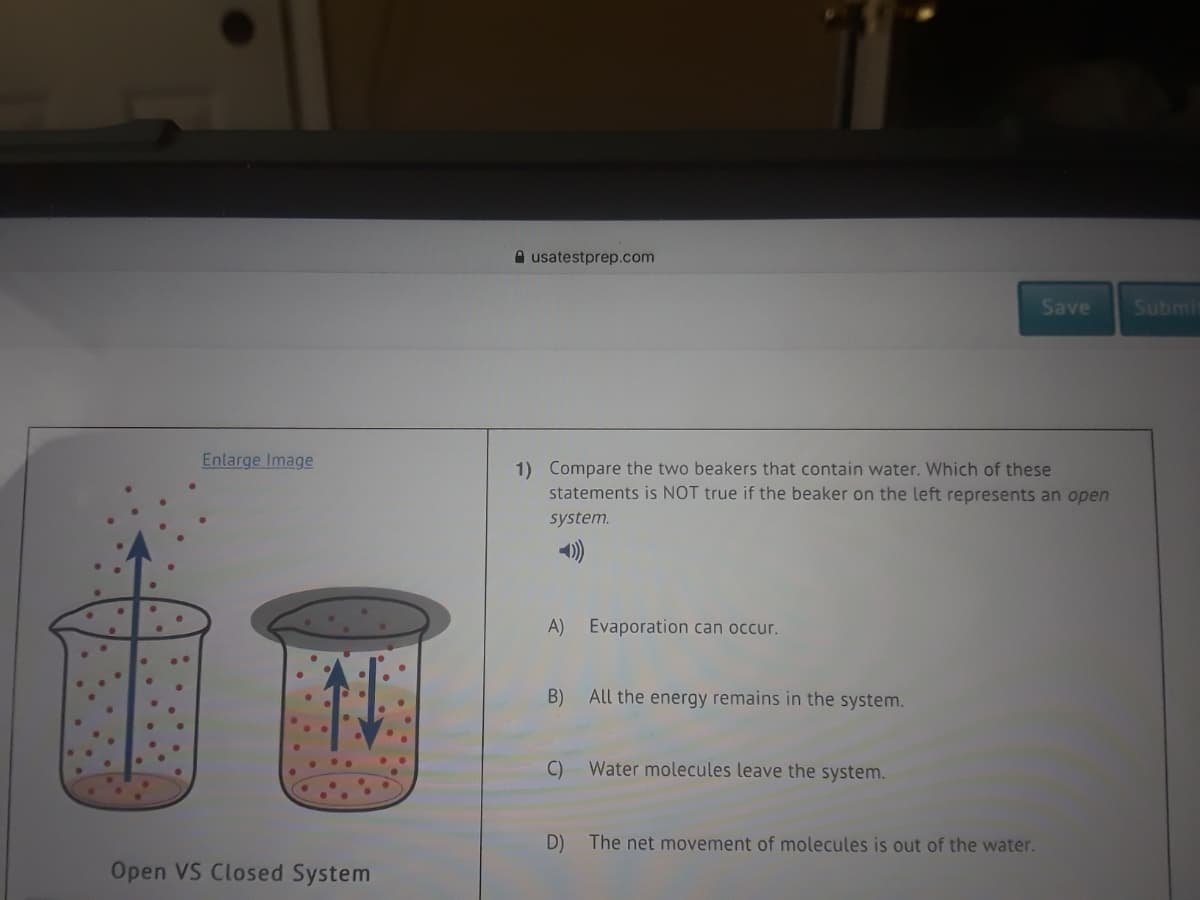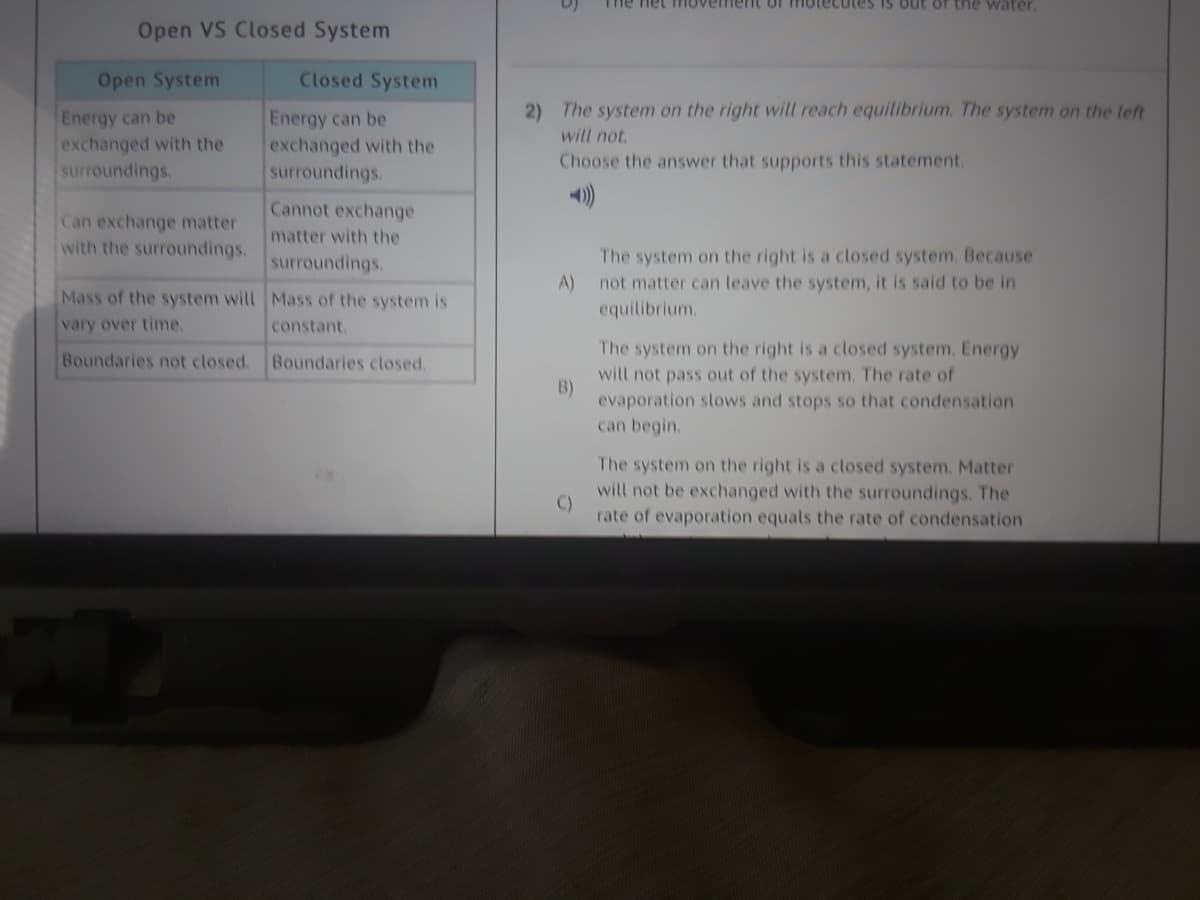Enlarge Image 1) Compare the two beakers that contain water. Which of these statements is NOT true if the beaker on the left represents an open system. ) A) Evaporation can occur. B) All the energy remains in the system. C) Water molecules leave the system. D) The net movement of molecules is out of the water. Onen VS Closed System
Fluid Pressure
The term fluid pressure is coined as, the measurement of the force per unit area of a given surface of a closed container. It is a branch of physics that helps to study the properties of fluid under various conditions of force.
Gauge Pressure
Pressure is the physical force acting per unit area on a body; the applied force is perpendicular to the surface of the object per unit area. The air around us at sea level exerts a pressure (atmospheric pressure) of about 14.7 psi but this doesn’t seem to bother anyone as the bodily fluids are constantly pushing outwards with the same force but if one swims down into the ocean a few feet below the surface one can notice the difference, there is increased pressure on the eardrum, this is due to an increase in hydrostatic pressure.


Trending now
This is a popular solution!
Step by step
Solved in 2 steps






